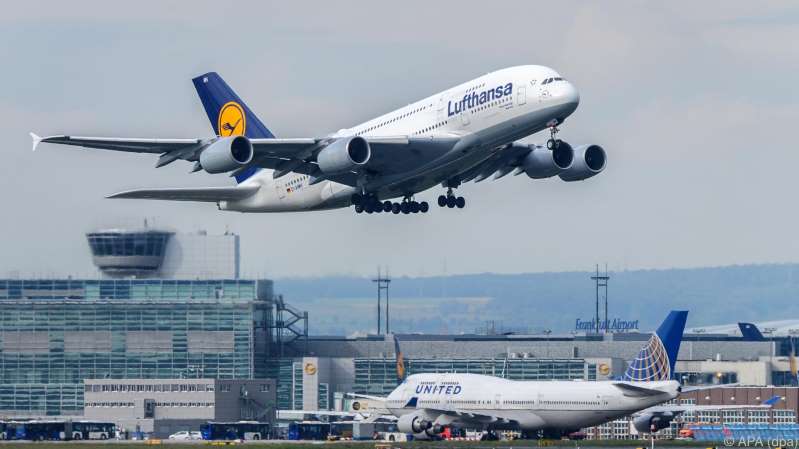The effects of the corona pandemic are dramatic for the industry.

Empty terminals, empty skies: According to the industry, Germans will only fly as much in a few years as they did before the corona crisis. In 2025, as many people across Germany are likely to board aircraft as in 2019, according to the Federal Association of the German Aviation Industry (BDL). The industry is going through its longest and deepest crisis.
Airlines and airports will therefore make losses this year too, and numerous jobs are threatened. The federal and state governments could counteract this with millions. Meanwhile, companies are hoping for an end to the near standstill in spring.
“Testing instead of quarantine”, that is the central demand with a view to Easter. Because the prospect of not being able to leave the house for several days after a trip to risk areas prevents many from flying. “Anyone who can show a negative test or proof of immunity must be able to travel again,” demanded association president Peter Gerber on Thursday.
Airlines are reluctant to offer new offers. Easyjet announced on Thursday that it would operate a maximum of ten percent of the actually possible flights from January to March. The German companies have reduced their offer for January and February to 16 percent, in March it could grow to 47 percent if the number of vaccinations increases and the coronavirus infections decrease.
The German airports can hope for corona aid amounting to one billion euros from the federal and state governments. The conference of state finance ministers agreed to this on Thursday, according to information from the German press agency. The German Finance Minister Olaf Scholz (SPD) has not yet released the federal share of 500 million euros. The Ministry of Finance welcomed the willingness of the countries and announced discussions with them soon.
“Central trading hub”
Bavaria's Finance Minister Albert Füracker (CSU) told the dpa in Munich that the federal government must also do its job and help the airports as a cornerstone of the transport infrastructure through the difficult times. “Airports are not only gateways to the world and a symbol of freedom, they are also central trading hubs and employers for many thousands of people.”
According to the Association of German Airports (ADV), your situation is extremely tense. Several operating companies struggled to survive. For the years 2020 and 2021, the expected loss is estimated at 3 billion euros.
The environmental association BUND, however, warned against wasting tax money. “Under no circumstances should airports receive grants that were already dependent on subsidies before the corona crisis and are engaged in a ruinous price war among themselves,” explained traffic expert Jens Hilgenberg. For this purpose, the BUND provided a list of ten permanently subsidized airports. Niederrhein-Weeze Airport, which is listed alongside other airports in this category, emphasized that it was not one of them.
From an industry perspective, the sharp decline in air traffic in Germany is endangering numerous jobs. Of the approximately 255,000 jobs at airlines, air traffic control and airports across Germany, 60,000 are in danger of being lost in the next few years, the BDL estimated based on company information. So far, short-time work and crisis packages with the unions have prevented mass layoffs. 60 to 70 percent of the industry employees are on short-time work.
Corona had pushed the number of passengers at German airports to the lowest level since reunification. From January to December 2020, 63 million passengers were counted across Germany. That is only a quarter of the number of 2019. This year the BDL considers 95 million possible, in the next 189 million. According to the scenario with 225 million passengers, the pre-crisis level would be reached again in 2025.
Air traffic around the world was on its knees. The US airline American Airlines made a net loss of 2.2 billion dollars (1.8 billion euros) in the three months to the end of December alone, as the company announced on Thursday. In the same period last year there had been a profit of $ 414 million. Revenue slumped 64 percent year over year to $ 4.0 billion.

